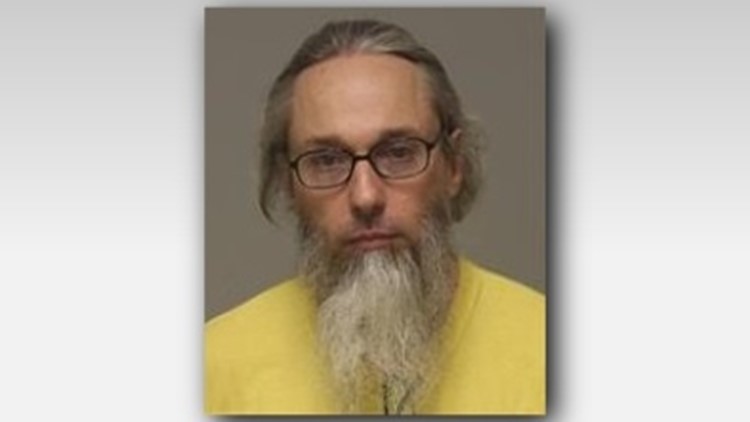A jury on Wednesday convicted the leader of an Illinois anti-government militia group of several civil rights and hate crime charges in the 2017 bombing of a Minnesota mosque – Bloomington's Dar Al-Farooq Islamic Center.
Michael Hari, 49, was found guilty on all five counts. They include damaging property because of its religious character, forcibly obstructing the free exercise of religious beliefs, conspiracy to commit felonies with fire and explosives, using a destructive device in a crime of violence, and possessing an unregistered destructive device.
Prosecutors outlined Hari’s hatred for Muslims as his motivation for the bombing during the trial, citing anti-Islam excerpts from Hari’s manifesto known as The White Rabbit Handbook, named after his militia group. Prosecutors presented evidence to jurors that included phone records and testimony of federal investigators who tracked Hari down to Clarence, Illinois, a rural community about 120 miles south of Chicago where Hari and two co-defendants lived after a seven-month investigation.
The testimony by those co-defendants, Joe Morris and Michael McWhorter, portrayed how Morris viewed Hari as a father figure, and how Hari instructed them to throw the pipe bomb into the Dar Al-Farooq Islamic Center as Hari waited in the car after driving up from Illinois in a truck rented by Hari. Morris, who along with McWhorter pleaded guilty in January 2019 to their role in the attack, testified that Hari said the mosque trained ISIS fighters.
"Learning that Mr. Hari ... (that) he's guilty of all five counts, sends a strong message – a relief for our community today – that this case and the attack against our community, an attack against our mosque, an attack against all places of worship, is a serious crime in the United States and it will be met with justice," said CAIR-MN Executive Director Jaylani Hussein during a press conference Wednesday afternoon.
The bombing took place on Aug. 5, 2017, when the pipe bomb exploded in the imam’s office as worshippers gathered for early morning prayers. No one was hurt in the explosion, though community members where shaken by the incident and the mosque’s executive director testified last month that it has led to diminished attendance due to fear.
"Today, we reassure in the court system and this jury, that the freedom of religion will be protected against any and all actors," Hussein said.
Defense attorneys argued that prosecutors failed to produce forensic evidence putting Hari at the suburban Minneapolis mosque on the day of the attack and attempted to discredit Morris and McWhorter with what they said were inconsistencies in their testimony. Hari refused to testify in his own defense.
Prosecutors refuted the defense’s claims, citing Hari’s past as a former sheriff’s deputy that investigated crimes as how he knew not to leave forensic evidence behind.
In the months following the bombing, KARE 11's Jana Shortal spoke to a leader at the mosque, Mohamed Omar.
“We came to Bloomington because it was safe, and our center was in Bloomington because it was a place where you could raise your kids, a place you can trust… that was before the incident, before it happened," Omar said.
He said the bombing changed everything for his community.
“Having the fear that someone would come anytime and hurt you or do something you don't know what is coming next. That’s what changed,” he said.



